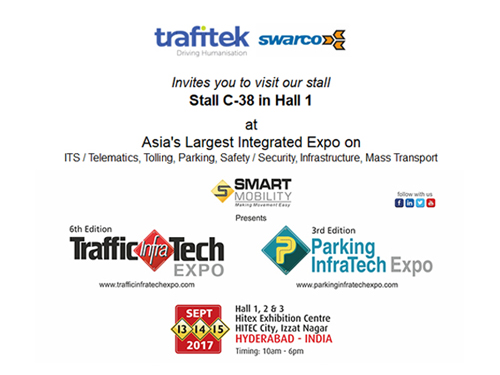News & Events
Event
Trafitek participates in Asia's Largest Integrated Expo, Hyderabad, India, as a Gold Partner.
Trafitek, the dependable smart mobility partner for smart cities has participated in Asias’s Largest Integrated Expo. presented by SMART Mobility, at HITEC City, Hyderabad from 13th to 15th of September, 2017.
Event
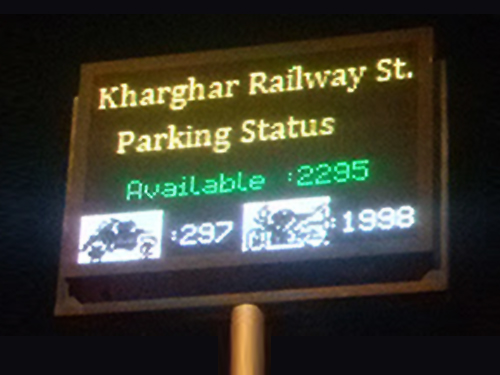
Trafitek installs Integrated Parking Availability Display System
Trafitek Solutions Pvt Ltd, one of the exhibitor of Smart Mobility 2017 -TrafficInfraTech Expo and Parking InfraTech Expo- has developed an interface software to combine two different software applications on a web platform adding a new value to the end user experience. Trafitek integrated a third-party Parking Management System with their Variable Messaging Signs (VMS) installed at the road intersection near the Kharghar Railway station in Navi Mumbai to display vacant parking slots, thereby giving advanced information to the motorists before approaching, helping them to plan their time effectively.
The software could tap into the database of the Parking Management System and collect the values of selective parameters such as – total number of parking capacity and then the parking slots available for cars & two- wheelers. The interface software then passes on these values to the VMS application where they get displayed. The software also facilitates to switchover the display from showing Parking information to showing regular pre-programmed messages and alerts to the travellers.
Throughout the process, Trafitek was continually involved with software teams on both the sides, the VMS as well as the Parking Management System. This integration helps people with advanced decision making before reaching the parking bay. Dhaval Desai, MD, Trafitek Solutions Pvt Ltd, said, “As part of our slogan of Driving Humanisation, we shall continue to put efforts in building such integrated solutions for better mobility and satisfaction of the people”.
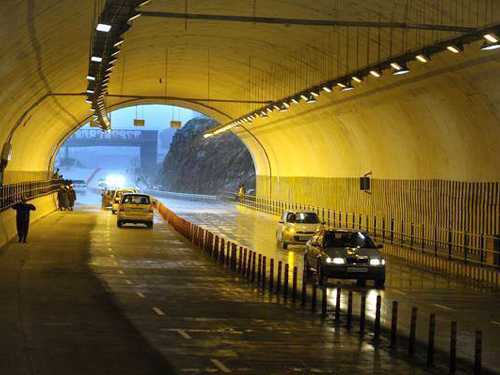
INDRA'S Integrated Tunnel Control System in Chenani-Nashri Tunnel
The recently opened Chenani – Nashri Tunnel on the Jammu-Srinagar National Highway has been developed, built and operated by IL&FS Transportation Networks Ltd. The highly advanced tunneling technology, is safe and secured tunnel in Asia with smart features such as an integrated traffic control system, surveillance, ventilation and broadcast systems, firefighting system, and SOS call-boxes at every 150 meters. The tunnel deploys the latest integrated tunnel control system developed by Indra Sistemas S.A., a leading global technology company headquartered in Spain. At the core of the Integrated Tunnel Control System is Indra’s proprietary Horus software which controls all the sub systems- Traffic Control System, Emergency Call System, Video Surveillance System, Electrical Fire Signaling System, Access Control System, Tunnel Ventilation System, Power Supply System, Communication System, Fire Fighting System, and the Tunnel and Roadway Variable Message System. Indra has implemented similar Integrated Tunnel Control System in more than twelve road tunnels worldwide.
Indra has recently been awarded a contract from the Delhi Metro to implement automatic fare collection and ticketing technology on 14 new stations on the Delhi-Noida metro line. Indra has already implemented its ticketing technology on Delhi’s Metro (Airport Metro line), Mumbai’s first and only subway line, Mumbai monorail (India’s first ever monorail) and Kolkata metro. In the pipeline are Navi Mumbai subway line and Kolkata new subway. In air traffic and transport, Indra’s deployed radars and Air Traffic Management Systems control over 80% of the Indian airspace, while 39 airports use its ATC systems. Indra has also been entrusted with modernisation of Delhi’s air traffic control center, at the Indra Gandhi International Airport Terminal 3.
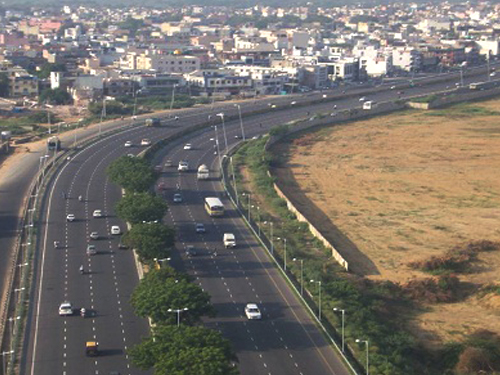
Center plans for Rs 5 lakh crore worth Highway projects
The Narendra Modi government has set an ambitious target of awarding Rs 5 lakh crore worth of highway contracts, totalling about 50,000 km, in the last two years of its tenure, surpassing the cumulative road length awarded for paying in the last five years.
Road transport and highways minister Nitin Gadkari said that the contracts will be for 44 economic corridors and 10 expressways, and would include the ‘chardham’ connectivity programme, northeast connectivity programme and the borders-linking projects. Over the last five years, the government could award only 40,000 km of fresh highway length for construction.
At present, there are 10 expressway projects at various stages of implementation. Gadkari said his ministry would raise money through NHAI bonds, monetisation of highways and additional allocation in budgetary support. He said the Centre’s first expressway, the Eastern peripheral expressway, would be ready in a few months.
Most of these projects would be undertaken on the hybrid annuity model, where the government shares the project risk with the private partner and bears 40% of the project cost upfront. Of the 50,000 km of road length that will be awarded for construction, paving work for 30,000 km of highways will start in the last two years, the ministry has said.
This fiscal, the government is targeting construct of almost 15,000 km of highways, up 45% from what it achieved in FY17. Over the last three years, the ministry has awarded contracts for over 34,000 km of roads as compared with 15,000 km awarded by the UPA government in its last three years. Actual construction in the last three years has been about 22,000 km as compared with 6,000 km during the last three years of the UPA government.
Location tracking compulsory for big public vehicles
The insurance companies in India see a huge opportunity in the vehicle market after the government has mandated compulsory location tracking devices for all public transport vehicles that have a seating capacity of over six people. State transport buses, school vans, ambulances and other special purpose public carriers will have to follow this regulation.
Insurance companies like ICICI Lombard, Liberty Videocon and Bajaj Alliance already have such devices fitted. They have live-tested telematics solutions on the road. Others are expected to follow suit. Bajaj Alliance General Insurance’s cars for its policyholders have vehicle track location, geo-fencing, engine/ battery health indicators, towing services and emergency alert services.
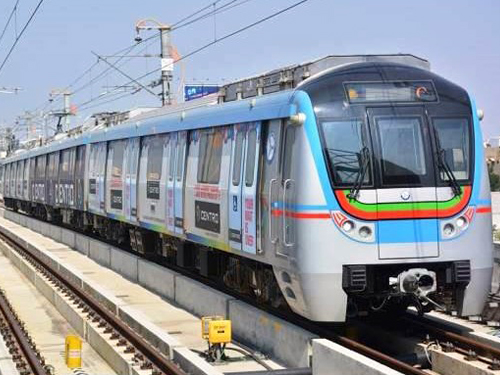
Underground parking at Hyderabad Metro Rail stations
The Hyderabad Metro Rail will provide underground parking facilities at four places and a puzzle parking facility at one of the Metro Rail stations in order to cater to the vehicular traffic at the stations.
The State government has recently asked the Metro Rail authorities to explore possibilities of going for underground parking facility since there is space constraint at various junctions in the city.
Hyderabad Metro Rail MD NVS Reddy said the L&T has been constructing malls at four places. These places would have underground parking facility and the places include Punjagutta, Erramanzil, Madhapur and Moosarambagh. The Punjagutta mall is in the final stage and remaining three are at under-construction level, the HMR MD said.
HMR have been identified parking facilities at 32 locations where multilevel parking is being proposed at 15 locations. The puzzle parking system is a unique and automated vehicle parking system where parked vehicles can be moved horizontally and vertically. This is a fully automatic independent system, which can be easily configured and customised to any property.
